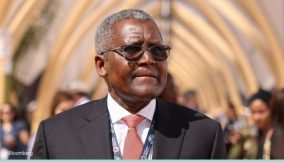Heineken Lokpobiri, the minister of state for petroleum resources (Oil), has emphasised that Nigeria must address its energy poverty before fully embracing the global energy transition.
Delivering a keynote address at the Sub-Saharan Africa International Petroleum Exhibition and Conference (SAIPEC) 2025, Lokpobiri outlined Nigeria’s vision for a sustainable energy future while stressing the need to prioritise energy access for its citizens.
Under the theme “Building Africa’s Future: Advancing Local Content and Sustainable Development in the Oil and Gas Industry,” Lokpobiri highlighted the critical role of local content and sustainable practices in shaping Africa’s energy landscape.
He noted that while the global shift toward cleaner energy is an opportunity, Africa must first tackle its energy poverty to ensure a just and inclusive transition.
Local Content as a Catalyst for Growth
Lokpobiri underscored the transformative power of local content in Nigeria’s oil and gas sector.
He pointed to the success of the country’s divestment program, which has empowered indigenous companies to take ownership of marginal fields and shallow water assets. This initiative, he said, has not only boosted production capacity but also created opportunities for local businesses, service providers, and communities.
“Local content is no longer a luxury; it is the key to unlocking Africa’s true potential,” Lokpobiri stated. “By investing in local businesses, nurturing our youth, and transferring critical technology to our people, we are not just building an industry—we are shaping our future.”
He called for stronger regional collaboration, investment in human capital, and innovation to ensure that African nations can compete globally. However, he warned that without addressing energy poverty, the continent risks leaving millions behind in the transition to cleaner energy.
Read also: GET.invest Nigeria berths to mobilise investments in renewable energy
Sustainability and the Energy Transition
While acknowledging the global push for renewable energy, Lokpobiri stressed that Africa must adopt a balanced approach.
He outlined a two-pronged strategy: optimising hydrocarbon resources to diversify economies and investing in renewables to secure long-term energy stability.
“The global transition to cleaner energy is not a threat; it is an opportunity,” he said. “But sustainability is not just about the environment; it is about our people. Host communities must benefit, and our children must inherit an industry that prioritizes education, healthcare, and infrastructure.”
Lokpobiri also highlighted the need for Africa to take control of its energy financing. He announced Nigeria’s leadership in establishing the African Energy Bank (AEB), a landmark initiative aimed at providing tailored funding for the continent’s energy needs.
“The African Energy Bank represents a shift toward financial autonomy,” he explained. “It allows us to move away from dependency on foreign capital and external policies that do not align with Africa’s development priorities.”
A Call to Action
The Minister called on African nations to unite in addressing energy poverty and advancing sustainable development. He urged stakeholders to strengthen regional collaboration, invest in human capital, drive innovation, and uphold transparency and governance.
“The time for talking has passed. Now is the time for action,” Lokpobiri declared. “To build Africa’s energy future, we must prioritize energy access, empower our people, and embrace innovation.”
Lokpobiri concluded by positioning Nigeria as a regional leader in Africa’s energy transformation. He described the current period as a new era of leadership, self-reliance, and bold investments, where Nigeria is not just adapting to change but shaping it.
Join BusinessDay whatsapp Channel, to stay up to date
Open In Whatsapp





